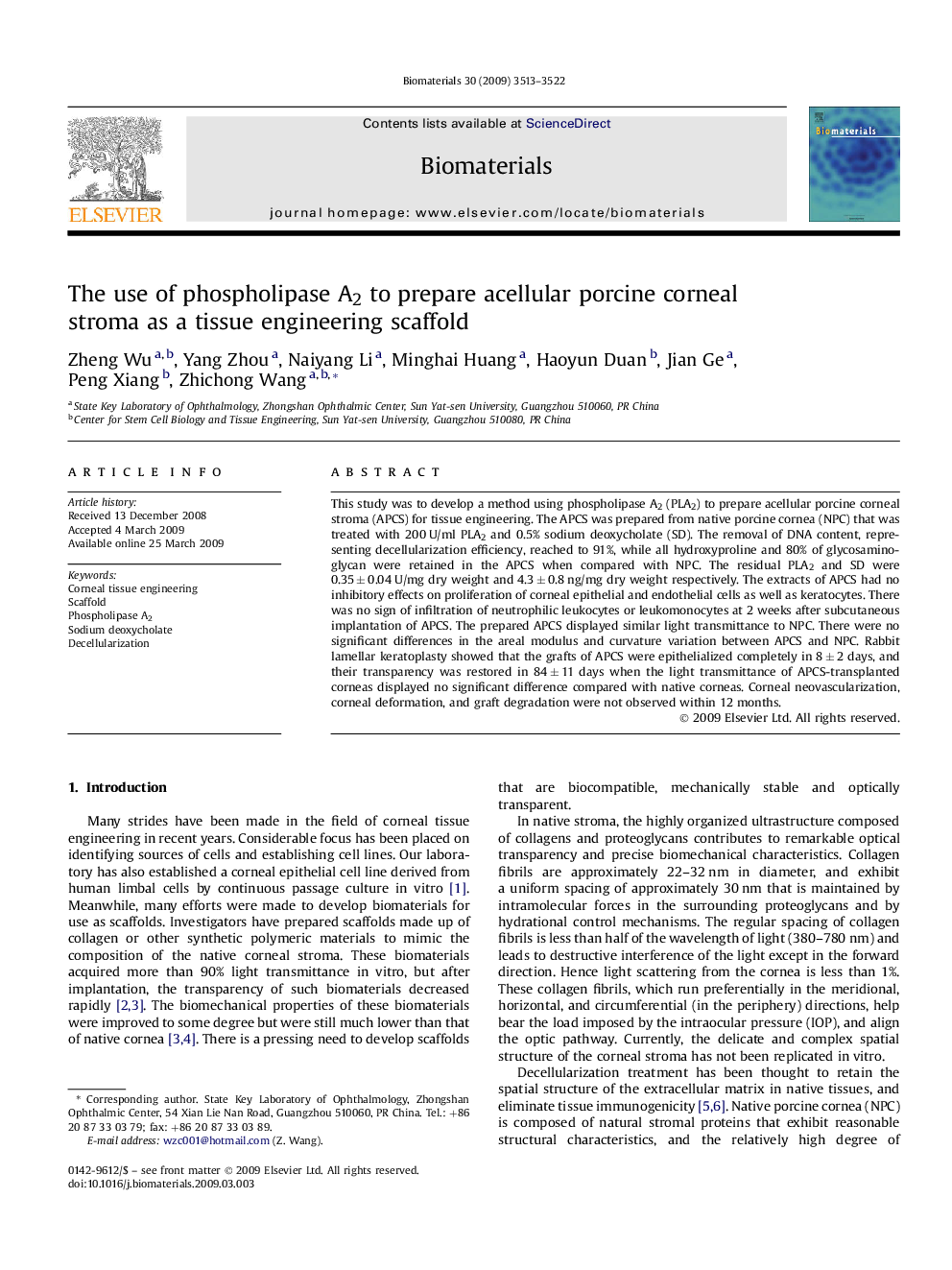| Article ID | Journal | Published Year | Pages | File Type |
|---|---|---|---|---|
| 8483 | Biomaterials | 2009 | 10 Pages |
This study was to develop a method using phospholipase A2 (PLA2) to prepare acellular porcine corneal stroma (APCS) for tissue engineering. The APCS was prepared from native porcine cornea (NPC) that was treated with 200 U/ml PLA2 and 0.5% sodium deoxycholate (SD). The removal of DNA content, representing decellularization efficiency, reached to 91%, while all hydroxyproline and 80% of glycosaminoglycan were retained in the APCS when compared with NPC. The residual PLA2 and SD were 0.35 ± 0.04 U/mg dry weight and 4.3 ± 0.8 ng/mg dry weight respectively. The extracts of APCS had no inhibitory effects on proliferation of corneal epithelial and endothelial cells as well as keratocytes. There was no sign of infiltration of neutrophilic leukocytes or leukomonocytes at 2 weeks after subcutaneous implantation of APCS. The prepared APCS displayed similar light transmittance to NPC. There were no significant differences in the areal modulus and curvature variation between APCS and NPC. Rabbit lamellar keratoplasty showed that the grafts of APCS were epithelialized completely in 8 ± 2 days, and their transparency was restored in 84 ± 11 days when the light transmittance of APCS-transplanted corneas displayed no significant difference compared with native corneas. Corneal neovascularization, corneal deformation, and graft degradation were not observed within 12 months.
